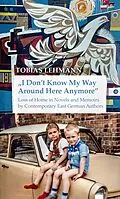Drawing on profound insights into the transformational journey of socio-cultural change in East Germany after unification, Tobias Lehmann presents inspiring and thought-provoking interpretations of two novels by Ingo Schulze, a work by Thomas Brussig, and the memoirs of Jana Hensel and Sabine Rennefanz. He skillfully weaves the immediate historical context into the fabric of these fictional narratives, revealing the profound connections between literature and the social landscape. Lehmann's interpretations emanate from his belief that literary analysis can illuminate the intricate ties between literary works and the realities of human experience, making this subject all the more significant in light of the persistent tendencies toward rightwing politics characterized by bitterness and blame in East Germany.
Throughout the book, particularly in the epilogue, the author emphasizes that grasping the deep-seated resentment driving these developments calls for an exploration of the collective feelings of uprooting and disorientation experienced by East Germans. One of the notable strengths of this work is its introduction of significant contemporary German novels to English-speaking audiences, many of which have remained untranslated for years, aside from Schulze's debut "Simple Storys".
Autorentext
Tobias Lehmann holds a doctorate in German studies from the University of Oregon in Eugene, where his dissertation focused on Wendeliteratur. During his doctoral studies, he published research papers that critically examined Holocaust memoirs, the literary works of Monika Maron, and the philosophical concepts of Ernst Bloch. With several years of experience teaching German as a foreign language in Germany, East Asia, and the United States, Dr. Lehmann also earned a Master of International Studies from Korea. Additionally, he pursued studies in history and social sciences in Erfurt.
